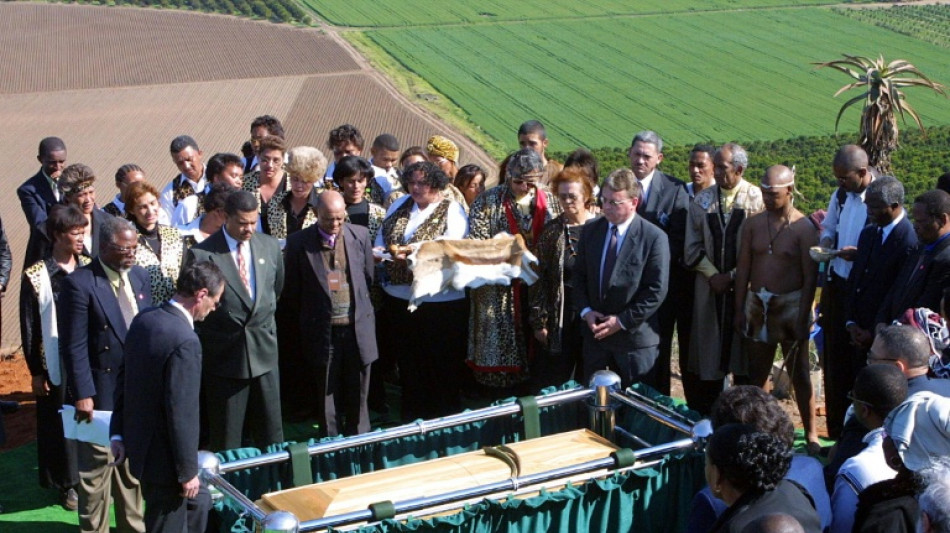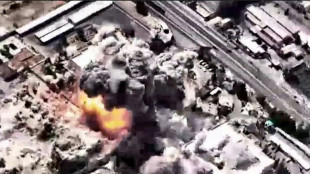

S.Africa wants return of apartheid-, colonial-era remains
South Africa is determined to repatriate the remains of its people taken abroad during the colonial era and those who died in exile as anti-apartheid activists, the culture minister said Monday.
The government was in contact with foreign institutions over the return of remains of indigenous people, including from the KhoiSan group who are regarded as among the country's "first people", minister Gayton McKenzie told reporters.
Government teams would also visit neighbouring countries such as Angola and Zimbabwe to inspect cemetery records to trace people who may have died there during the struggle against apartheid so they could be repatriated, he said.
"These are acts of justice, remembrance and healing," he said. "They affirm our government's commitment to restore dignity, promote cultural restoration, and confront the painful legacy of colonialism and apartheid."
The minister of sports, arts and culture announced a plan to rebury the remains of 58 indigenous people who had been removed for study by museums and other institutions.
The remains were among those taken from graves during the colonial era, he said.
"They were displayed in museums, studied in labs, and held in foreign institutions without consent or respect. We are correcting these injustices," he said.
"We call on all institutions, both here and abroad, to engage in honest and action-driven processes of restitution and repatriation."
McKenzie cited as a success the repatriation in 2012 of the remains of a KhoiSan couple, Klaas and Trooi Pienaar, who were illegally exhumed in 1909 and shipped to Austria for study.
He also referred to the return in 2002 of the remains of a KhoiSan woman, Sarah Baartman, who died in France in 1815 after being taken to Europe and paraded as a spectacle in one of the country's most emblematic such cases.
Later, in the fight against apartheid which was ended in 1994, "thousands of our people went into exile during the liberation struggle," McKenzie added.
"Many never came home. Some died unknown, buried in unmarked graves, without their families having the chance to mourn," he said.
A mission was headed to Angola in the next weeks with a list of 400 people to find, he said.
The government was in talks with an Australian demining firm for help to access areas that were still mined after Angola's decades of civil war that ended in 2002.
More than 1,000 anti-apartheid activists died in exile in countries in Africa but also in Cuba and Europe, officials said in September when the remains of 42 exiles were returned.
H.Dierckx--JdB



